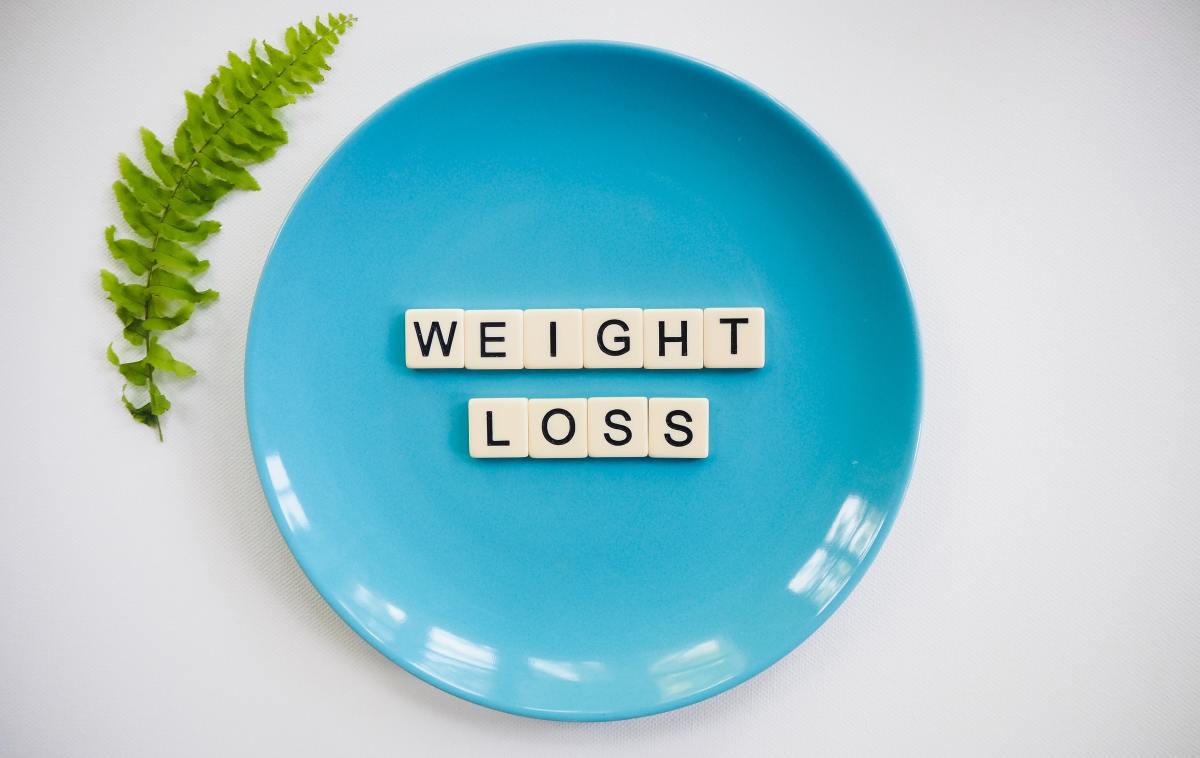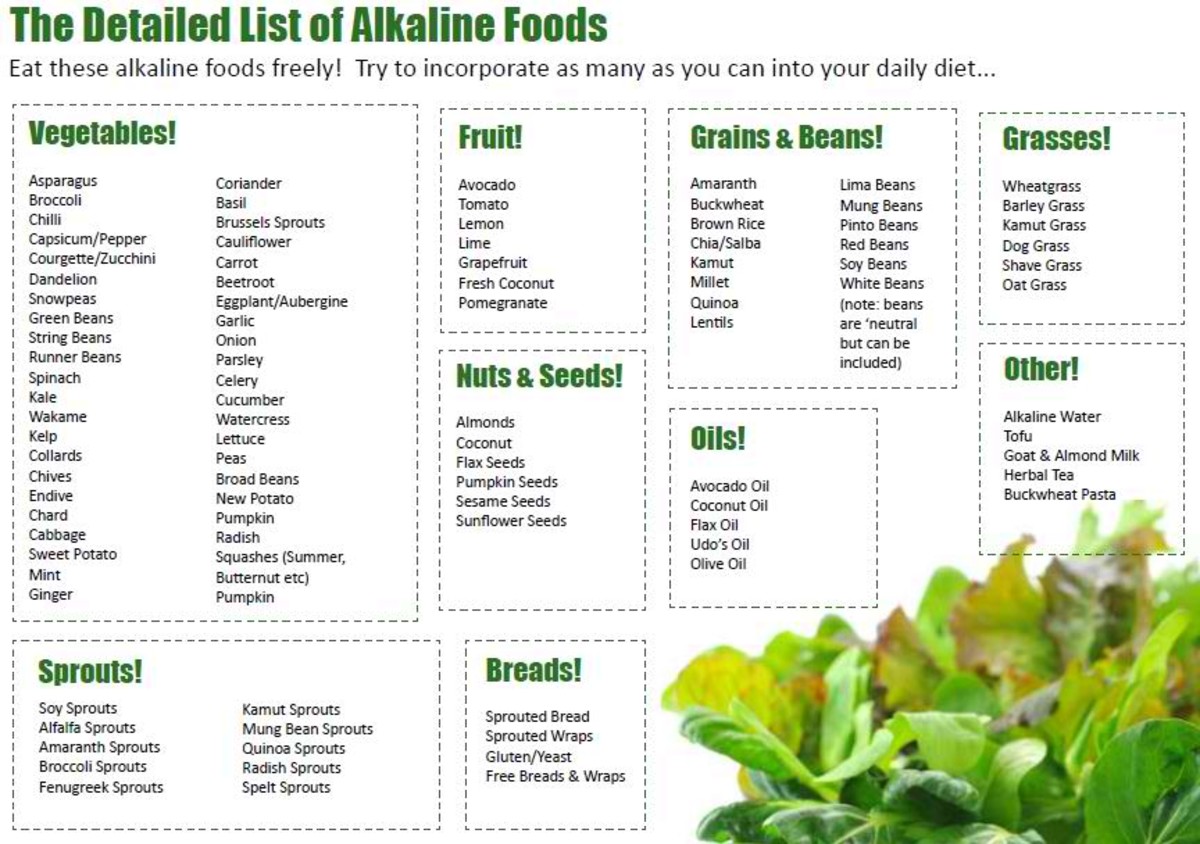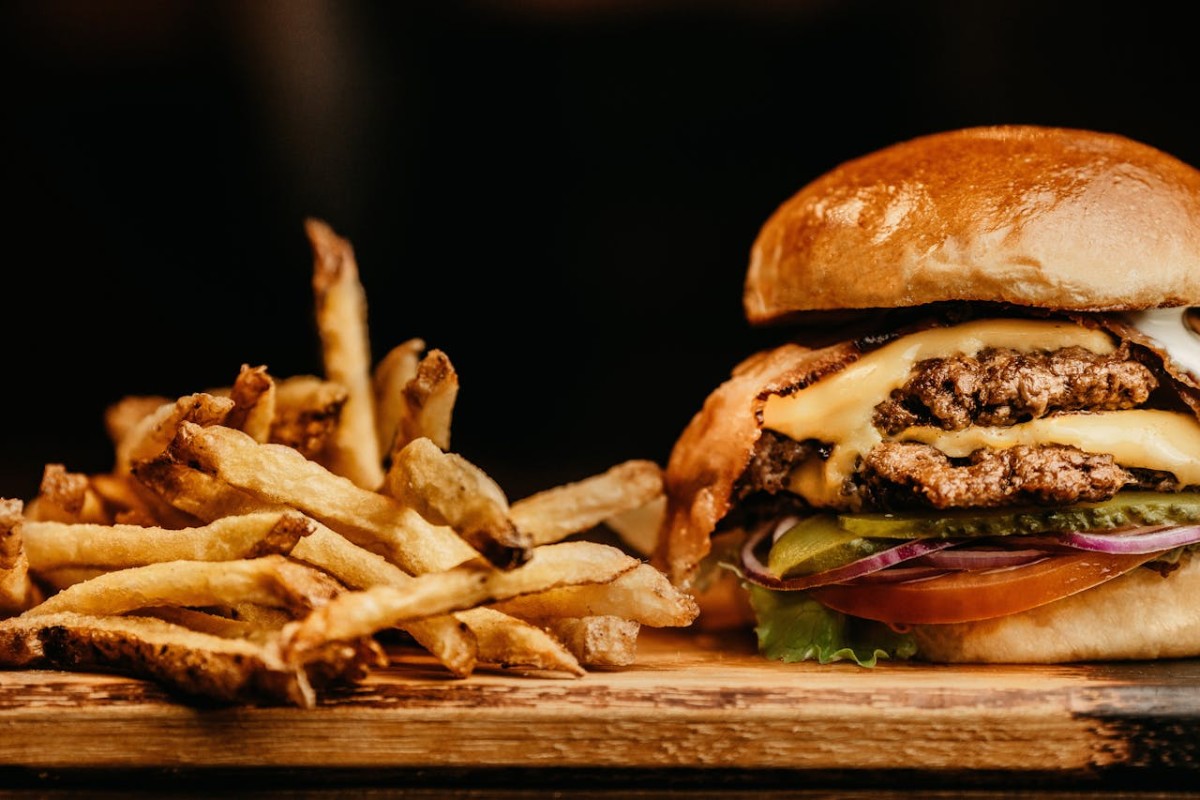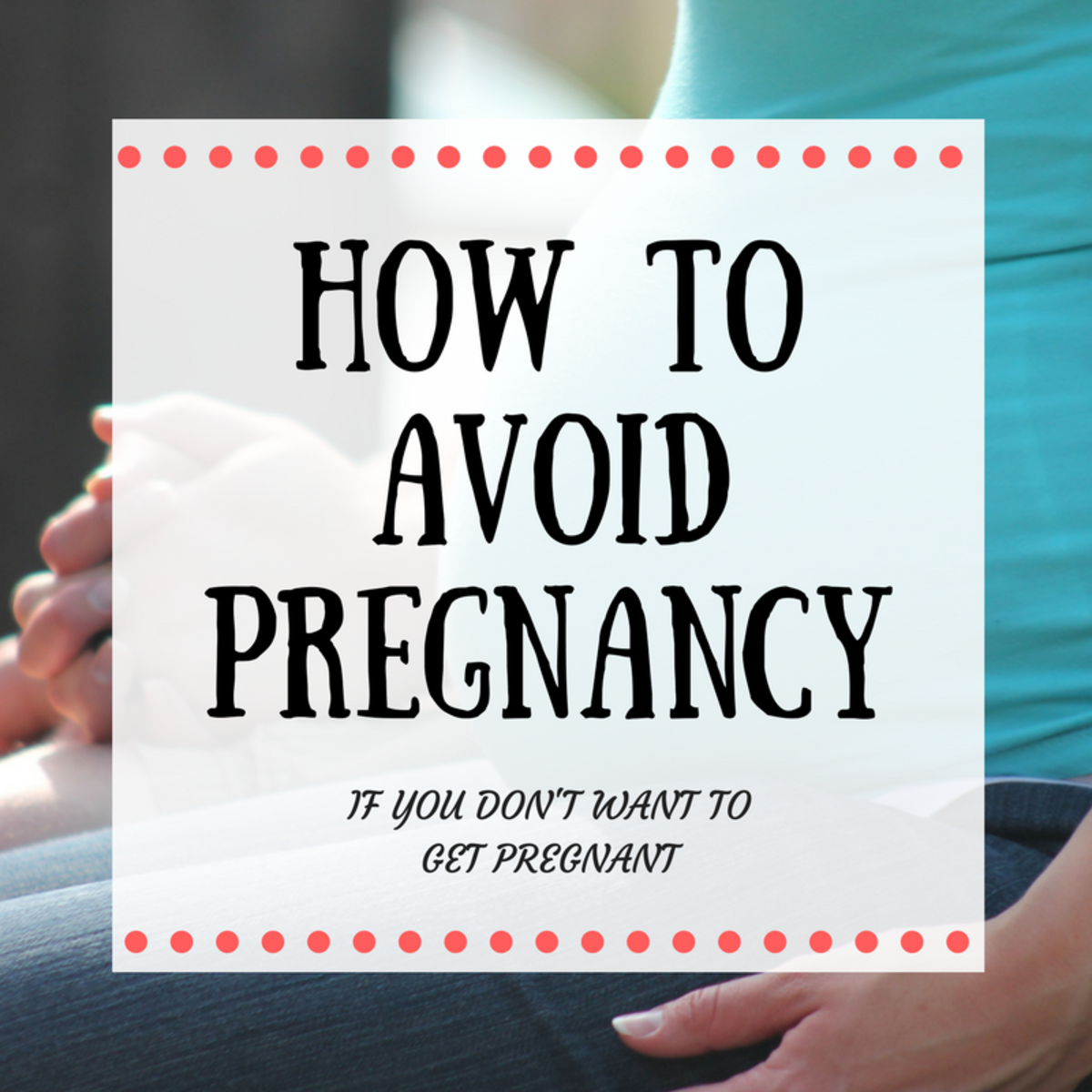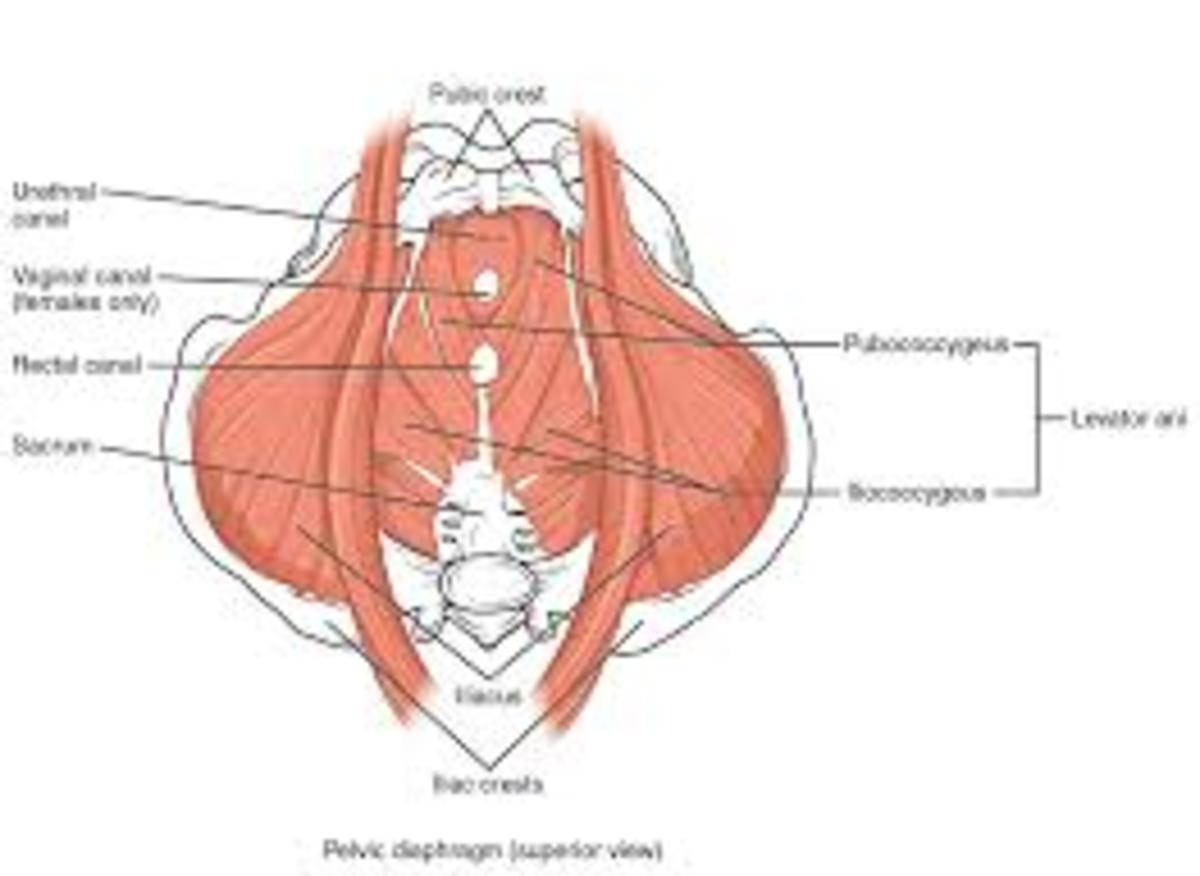The Role of Processed Food in Conception
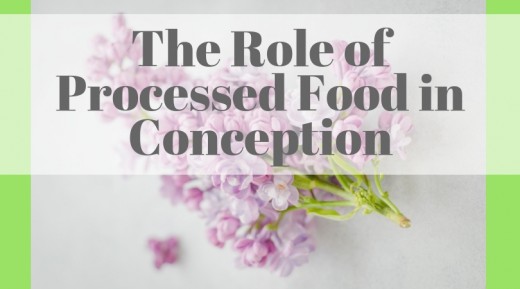
I’m sure everyone is well aware of the fact that some foods are better than others in regards to our diets and staying healthy. But were you aware that what you ate could either help you to be more fertile, or keep you from getting pregnant at all? It’s true. What you eat can help you develop strong bones, a healthy heart and mind, and even a strong immune system. However, they can also cause cancer, food allergies, heart disease, Alzheimer’s, and even osteoporosis. What you put into your body for nourishment is very critical to it being healthy and having a system that runs efficiently for you.
When you give your body the vitamins and minerals it needs, along with plenty of water and calories, it will function at peak performance and give you all that you need to be 100%. Although, when you don’t eat what you need to, or even worse, you consume toxic chemicals and other synthetic substances, you are just asking for trouble, usually in the name of autoimmune disease, or any host of other problems.
Infertility currently affects about 10% of the population, according to the American Society for Reproductive Medicine. But infertility isn’t the only reproductive issue that women are battling with. There are host of other issues, like irregular menstruation, endometriosis, dysmenorrhea, ovulatory disorders, tubal disease, chromosomal abnormalities, polycystic ovarian syndrome (PCOS), thyroid issues, hormonal imbalances, and type 2 diabetes. Together, endometriosis and fibroids represent the most common female reproductive disorders with an estimated combined incidence of up to 70% of women overall.
While couples can't control all of the causes of infertility and various reproductive disorders, they can control their eating habits. And, nutrition and a healthy body weight for both partners can have a significant impact on their ability to conceive. Your food choices can not only influence your present lifestyle, but can also to induce a number of gynecological disorders, such as dysmenorrhea, spermatogenesis, and irregular menstruation. Let me back up and start from the beginning by defining exactly what processed food is.

What are Processed Foods?
Processed foods are bagged, boxed, canned, or packaged food items that you find at the grocery store, gas station, and in vending machines, that have been pre-made ahead of time for your convenience. These include chips, cereal, granola bars, canned fruit, veggies and meals, frozen pizza and frozen meals, fruit snacks, crackers, anything flavored or brightly colored, and even your chopped fruit and bagged salads.
All of these items have added sugar, flavors, coloring, chemicals and preservatives to make it look appealing to eat, and to keep it shelf stable for long periods of time. Even items that you wouldn't think about are processed, like white sugar, white flour, milk, yogurt, American cheese, and lunch meat.
Processed foods have been stripped of their natural nutrients, either through high heat levels or toxic chemicals, and have had a good many additional products added back in, including synthetic (man-made) nutrients, so that they could actually be edible, and could pass the FDA's inspection.
Ultimately, all of these types of pre-made foods are high in refined sugar, synthetic salt, and lack any real nutrition. They may taste good, but they don't provide your body with anything that it can use to function each day. And, even worse, they load your body with all sorts of damaging products that are destroying your system.

Your Body is an Efficiently Working System
Your body has an internal balance that keeps it working well, keeping your body in tip top shape, providing you plenty of energy and immune support, and allowing all of your organs to function at 100%. All you need to do to maintain that balance is to provide it with good, wholesome nutrition, plenty of rest, activity, and water. However, somewhere along the way, we lost value in all of these things.
Fresh fruits and vegetables, whole wheat bread products, whole fat dairy products, red meats, grains, nuts, and seeds have become the enemy, and Oreos, goldfish crackers, Doritos chips, and sodas have become the name of the game. Everyone is eating low fat, no fat, and diet foods to cut out all of the healthy necessary fats in favor of refined sugar and sugar substitutes. What is happening?

What Your Body Needs to Function
Your body relies on you to provide it with the nutrients it needs to function properly. Without these key ingredients, you get sick and your body starts breaking down. Here are the most crucial items you need to be putting in your body.
The most important thing your body relies on is water. It is critical for waste removal and temperature regulation, and is an essential element of every cell. A few days without water can lead to serious illness and even death. Another important nutrient your body needs is carbohydrates. So many people are trying to avoid carbs because they are believed to be fattening, but this should just be limited to refined carbs, like white breads and store bought chips and crackers.
In reality, carbs are essential for proper body function. Carbohydrates are broken down into natural glucose, which is your brain and body’s main fuel. They also ensure your body is not breaking down proteins to gain energy, preventing loss of muscle mass. However, what I'm talking about is complex carbohydrates, like whole grains (wheat, quinoa, barley, lentils, etc.), vegetables and fruit. These take longer to break down and keep you fuller for longer, meaning you cut down on unhealthy snacking.
Another nutrient critical for good health is protein. Protein is essential in forming muscles to creating new enzymes and hormones. These power packed nutrients are comprised of small building blocks called amino acids, which are the building blocks of your cells. To ensure you’re getting all of the 20 essential amino acids you need, you should make sure include a variety of proteins in your diet, such as meat, eggs, dairy, nuts, and beans.
Animal proteins provide all 20 essential amino acids that your body needs, while plant proteins may be lacking in even the basic 9 essential elements. Just make sure that you're choosing organic varieties of animal products to avoid harmful processing chemicals, unnecessary hormones and antibiotics, and steroids.
And although your body needs all sorts of valuable vitamins and minerals, the last critical nutrient that I'll discuss here is fat. I know this sounds crazy, but healthy fat is an essential nutrient that boosts your body's absorption of vitamins and helps to protect your organs. Fat also gives your body a great source of fuel for giving you plenty of energy.
Of course there are bad fats, called trans fats, or man-made synthetic fats, found in processed and store-bought baked foods. These increase your risk of heart disease 100 fold and should be avoided whenever possible. However, healthy saturated and unsaturated fats, found in natural sources, actually protect your heart and aid the prevention of heart disease. These good fats can be found in organic animal products, nuts, avocados, and wild caught salmon.

Why are Processed Foods So Bad?
Processed foods are generally foods that have been chemically processed and are made solely from refined ingredients and artificial substances. You can already see some serious buzz words here, like chemicals and artificial. That is the extent of processed foods. When you eat that bag of Cheetos for lunch, you are putting nothing but artificial substances into your body as food.
Your body then takes it and tries to process it for energy and nutrients, but because there is nothing to process, it does two things with it. First your body stores those things it doesn't know what to do with, and second it attacks those substances that can harm you in an effort to protect you. Have you heard of leaky gut syndrome? This is your body attacking the harmful substances that have attached themselves to the sides of your gut, whether in your intestines or stomach, and you end up with a literal hole.
You can see this is going to get bad fast. Now the contents of your stomach are floating around inside your body attaching to other things like your organs, and then not only infect your body with dangerous bacteria, but then cause your body to attack other body parts in an attempt to remove the offending substances. Welcome cancer, heart disease and other autoimmune diseases.
Your body is also not getting the nutrients it needs to function, so other parts of your body start shutting down or stop working correctly. For more information and details on why processed foods are so bad for you and what you can do now to start healing, see my article on this topic.

How Do Processed Foods Affect Your Ability to Conceive?
Every new life starts with two seemingly simple events. First, an active sperm burrows into a perfectly mature egg. Then the resulting fertilized egg nestles into the specially prepared lining of the uterus and begins to grow. The key phrase in that description is "seemingly simple." Dozens of steps influenced by a cascade of carefully timed hormones are needed to make and mature eggs and sperm. Their union is both a mad dash and a complex dance, choreographed by hormones, physiology and environmental cues.
Each detail needs to be perfectly balanced, your hormone levels need to be right, and your body needs to be healthy enough to provide for a developing baby in order for this process to work. As you saw, 70% of women have some sort of reproductive disorder hindering their ability to get pregnant, and it's no surprise with the diet most Americans eat.
Food is meant to nourish our bodies and optimize our health, which in turn has a positive impact on fertility. However, the wrong foods can and do contribute to our growing infertility rates, and percentage of the population of American women with reproductive disorders.
GMOs- GMO foods are foods that have been altered by science to grow bigger, have herbicide tolerance, and be insect resistant, amongst other things. They have been altered from their natural, nutritious state into a food that studies now show can negatively impact your fertility amongst causing other health issues. While soy, corn, and potatoes are the most prevalent GMO foods, there are many others that you should be aware of as well, like salmon, canola and vegetable oils, and corn.
Pesticides and herbicides- The pesticides and herbicides sprayed on our foods and lawns have been shown to negatively impact fertility. Many studies have shown that these chemicals affect both male fertility (lower sperm count) as well as female fertility (causing hormonal imbalances). A study published last year in the Journal of the American Medical Association suggests that pesticide residues in food account for a large proportion of the roughly 100,000 unsuccessful pregnancy attempts in fertility clinics across North America.
Genetically modified (GMOs) herbicide-tolerant crops are grown with large amounts of herbicides, a class of pesticide. For this reason, GMO foods should be strictly avoided by women who want to conceive. Conventional animals are also fed grains and feed that contain a lot of pesticides. The only way to avoid ingesting these anti-nutrients is to buy organic foods including organic fruits, vegetables, dairy, meats, etc., and to stay far away from processed foods.

Soy- Soy foods contain compounds which mimic estrogen in the body. By consuming soy foods and exposing yourself to these synthetic hormones, estrogen levels can get higher than they should be, causing other hormones to become deficient. Unopposed estrogen or estrogen levels that are too high can cause many fertility issues. There are many studies that have shown a link between consumption of soy foods lowering sperm counts in men and effecting female fertility due to the phytoestrogenic actions that soy produces.
Caffeine- It is well-known that caffeine in any form is harmful to your body. Many of us forget, however that caffeine is a psychoactive substance, a drug that crosses the blood-brain barrier to stimulate the central nervous system, and can lead to insomnia, nervousness, restlessness, irritability, an upset stomach, a fast heartbeat and even muscle tremors. The biggest study ever done on this topic showed an increased risk of miscarriage early on, and experiencing a spontaneous abortion, with increasing consumption of coffee/caffeine during early pregnancy. Even moderate amounts of caffeine have been linked to negative health effects.
Refined Sugars- Sugar may be the one thing that most people know is not good for them. However, not all sugars are the same. The processed sugars like high fructose corn syrup, white sugar, corn sugar, etc., are the bad ones, while the natural sugars, like the ones found in fruits, pure maple syrup and raw honey are healthy. When someone consumes sugar, it creates a spike in the blood sugar causing the body to release insulin, trying to balance the blood sugar levels. Over time, when sugar is consumed day in and day out, this can create an insulin resistance, where the body is not responding to the insulin being released. This can go on to cause many different health issues, like diabetes, and other reproductive disorders.
Sugar Substitutes- Don’t think that turning to sugar-free or diet foods is going to help though. Sugar substitutes like agave, Stevia, SweetNLow, Splenda, Equal, etc. are even more dangerous for your body than processed sugars. Although they may derived from natural sources, they are synthetic, or developed by man from various non-food products to give you the sweet taste without the food calories. Studies dating as far back as the 1970s have linked artificial sweeteners to a variety of health problems, including cancer. It’s best to stick with natural sources like raw honey, coconut sugar, fruit, organic cane sugar, and maple syrup.
What does this look like for the average woman though? It can’t be too bad right? Everyone eats this stuff.

How Do Processed Foods Contribute to Reproductive Disorders?
It would be nice to think that you are immune because so many people eat this stuff, and babies are born every day. It can’t possibly be too bad for you. Approximately 50 million Americans, 20% of the population or one in five people, suffer from autoimmune diseases. Some estimates say that 75% of those affected, some 30 million people, are women. Still, with these statistics, autoimmunity is rarely discussed as a women’s health issue.
Autoimmune diseases are those where the body attacks and damages its own tissues, like we discussed above. These are caused by foreign materials, like toxic chemicals and preservatives that our bodies can’t process, being ingested on a regular basis. Some of the most harmful of these chemicals are hormone disrupters and endocrine-disrupting chemicals (phthalates) that mess with our body’s ability to reproduce. Endocrine disrupting chemicals contribute substantially to the most common reproductive disorders in women, endometriosis and uterine fibroids. They are also strongly linked to a variety of other reproductive disorders, like irregular menstruation, polycystic ovarian syndrome (PCOS), pelvic inflammatory disease (PID), ovarian cysts, dysmenorrhea, ovulatory disorders, tubal disease, chromosomal abnormalities, low sperm count or mobility, thyroid issues, hormonal imbalances, type 2 diabetes, and even cancer.
In each area, problems arise from hormone imbalances, immune system imbalances, infection of a reproductive organ, inflammation, foreign substances attaching to reproductive areas, and more, and all of this from those food items that we put into our mouths, or the packaging they were stored in (cans, plastic). But there is a light at the end of the tunnel. You can reverse the damage done to your body from these substances and return your fertility to a healthy, robust state.
Consider simply replacing those cooking ingredients that are harmful, with wholesome natural ones like whole wheat flour, coconut sugar, raw honey, and pink Himalayan salt. Consider dropping all processed foods a little at a time and either buying organic and/or making many of those items yourself. (I’ve got some great articles to help in every area.) Make a few lifestyle changes, one at a time, including regular detox baths with Epsom salt or baking soda, to really turn things around for you.

How Do So Many Women Still Get Pregnant if Processed Foods are So Bad?
“There are going to be variations in any human process—whether it’s how long you live or your risk of cancer,” says Aaron Styer, M.D., a fertility specialist at Massachusetts General Hospital. “The same thing applies to fertility.”
- Age. “Age is the most consistent gauge of a woman’s fertility,” says Styer. “If you’re younger, you have higher quality and quantity of eggs.” You have been exposed to a lesser amount of toxins than a woman twice your age. Younger bodies also run more efficiently, and have an easier time fighting off invaders.
- Weight. This issue boils down to hormones, which can be impacted by body-fat levels and thus affect signaling between your pituitary gland, which secretes hormones to various parts of the body, and your ovaries. Being both overweight and being underweight contribute to fertility.
- Timing. There’s between a 12 to 24-hour window when an egg can be fertilized during intercourse. This must be timed just right so that an egg is present, during ovulation, when the sperm arrive. Being just 24 hours off can prevent conception.
- Any reproductive conditions. If you have PID (pelvic inflammatory disease), PCOS (polycystic ovarian syndrome), or some other disorder when trying to conceive, this will likely make the process more difficult.
Everyone's body is different, processes food differently, fights infection differently, and has its own individual needs. You can't compare yourself to others in the fertility game, but can only do the best you can for yourself.

Processed foods are thankfully becoming much more widely known for their harmful ingredients and health consequences. If you’re struggling to conceive, are fighting with some reproductive disorder, or both, consider some of these suggestions above. Our bodies are meant to function efficiently for us. If only we would take good care of them, and give them the nutrients they needed, without any of the poisons, our lives would be so much easier.
This article was not meant to scare you or offend you, but is packed with tons of scientific evidence that what we as a society are eating every day is killing us slowly. Do the best you can for your body, and set your children up for healthy futures by simply changing a few of your daily habits. You’ll be happy you did, and will feel much better as well.
© 2019 Victoria Van Ness

